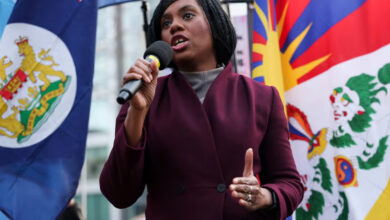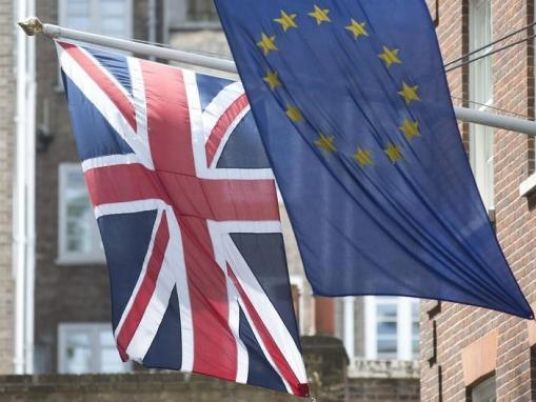Argentina President Cristina Kirchner slammed Britain for its "militarization" of their conflict over the Falklands, saying she would lodge a formal complaint with the United Nations.
"We will present a complaint to the UN Security Council and the UN General Assembly, as this militarization poses a grave danger to international security," Kirchner told a group of politicians and Falklands war veterans.
The two sides have ramped up the rhetoric in the run-up to the 30th anniversary of the war, which broke out on 2 April, 1982, when the ruling junta in Buenos Aires invaded the disputed islands in a bid to end British rule.
Britain has held the islands, home to about 3,000 inhabitants, since 1833.
Argentine officials have been seething in recent weeks, denouncing the deployment of a British warship and the dispatch of Prince William, second in line to the throne, for a tour of duty as a helicopter pilot.
Buenos Aires has also reacted sharply to a report that Britain had moved a nuclear submarine to the region, even though British officials have not confirmed the report in the Daily Mail newspaper.
Britain "is once again in the process of militarizing the south Atlantic," Kirchner said in the speech before an audience that included diplomats and opposition leaders, a map of the islands behind her.
"We cannot interpret in any other way the deployment of an ultra-modern destroyer accompanying the heir to the throne, whom we would prefer to see in civilian attire."
She said the Falklands were no longer "the cause of only the people of Argentina, but the cause of all Latin Americans — and a worldwide cause."
Hundreds of protesters rallied near the Casa Rosada, the government palace where Kirchner was speaking, waving Argentine flags and shouting, "Malvinas! They belong to us!" referring to the islands as they are known in Argentina.
In London, a Foreign Office spokesman told AFP: "The people of the Falkland Islands are British out of choice. They are free to determine their own future and there will be no negotiations with Argentina on sovereignty unless the islanders wish it."
Britain's UN ambassador Mark Lyall Grant wrote to the UN last week complaining that Argentina's actions on the Falklands in recent years put in doubt the South American nation's commitment to "peaceful cooperation."
Argentina has obtained the support of neighbors Brazil, Uruguay and Chile, which have all refused to welcome ships flying the Falklands flag in their ports — a diplomatic offensive that sparked anger in London.
Lyall Grant accused Argentina of "explicitly attempting to restrict trade and threatening the people of the Falkland islands with economic isolation."
Britain's UN envoy said this was the latest in a series of actions by Argentina, including withdrawing from a joint fisheries accord, banning charter flights heading to the islands from using Argentine airspace and passing a law penalizing companies that want to do business with the Falklands.
Britain "has made a number of proposals for different types of cooperation and remains keen to foster a constructive relationship with Argentina and to promote practical cooperation in the South Atlantic," he added.
"These have been rejected."
The tensions have brought together normally feuding Argentine political sectors, with the opposition largely backing Kirchner's position.
"The Malvinas [issue] requires that we take a new look and see Argentina fighting as a whole," said Federico Pinedo, leader of the right-wing Republican Plan bloc, in a radio interview.
Pinedo later called Kirchner's speech "impeccable."
Last week, Prince William began a six-week mission with the Royal Air Force in the Falklands, a move that has infuriated Argentina.
The 29-year-old has been sent to the archipelago as part of his duties as a Royal Air Force Sea King helicopter pilot, a deployment Britain says is routine but Argentina has slammed as a "provocation."
Both countries will soon mark the anniversary of the 74-day war which cost the lives of 649 Argentine and 255 British troops.
London retained control and has vowed to defend the islands as long as the inhabitants want to be part of Britain.




